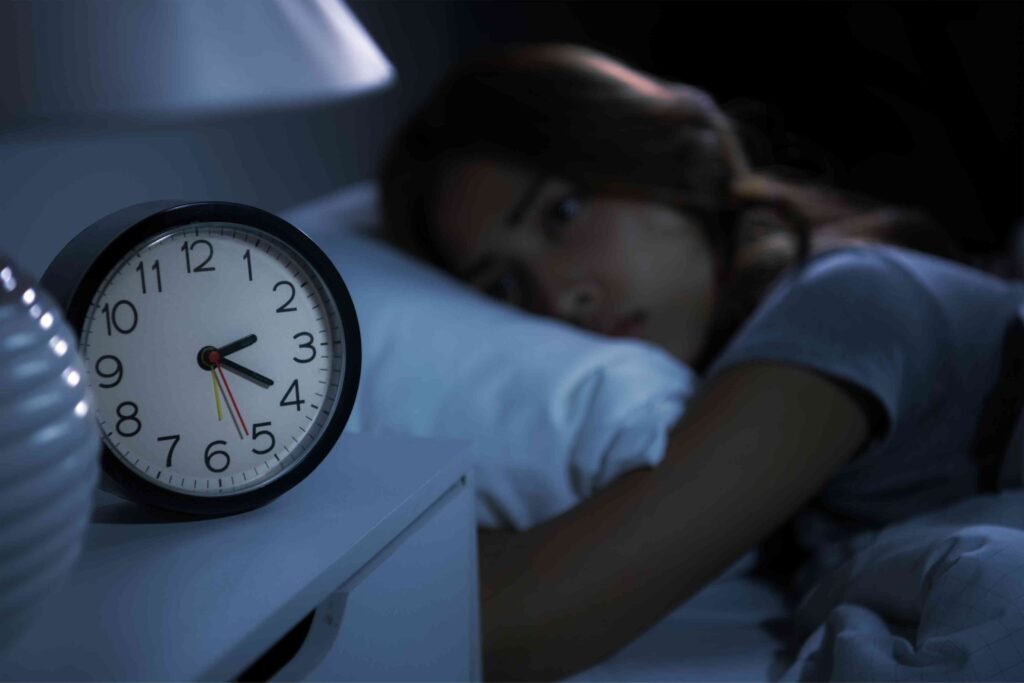How Sleep Disorders Disrupt Women’s Reproductive Health?
Let’s face it—sleep is often the first thing we sacrifice when life gets hectic. Between work, relationships, family responsibilities, and the pressure to do it all, women often find themselves skimping on rest. But here’s the real kicker: sleep isn’t just about feeling refreshed in the morning. It’s deeply connected to many aspects of our well-being, including our reproductive health.
We talk a lot about hormonal balance, menstrual cycles, fertility, and menopause. But what doesn’t get enough spotlight is how sleep disorders disrupt women’s reproductive health in more ways than we might expect.
This blog takes a deep dive into the link between sleep and reproductive health in women. We’re going beyond just “you need 8 hours” and getting into the science, real-life implications, and how sleep issues can throw your reproductive system totally off track.
Why Should We Care If Sleep Disorders Disrupt Women’s Reproductive Health?
You might be thinking, “Okay, poor sleep might make me cranky, but reproductive health? Really?” Yep—really. Sleep disorders don’t just cause fatigue and brain fog. They have the power to shift your hormonal balance, mess with ovulation, and even affect pregnancy outcomes.
Women are particularly vulnerable to sleep disturbances at various life stages—think puberty, menstruation, pregnancy, postpartum, and menopause. Each of these phases involves shifts in hormone levels, which are intricately tied to both sleep quality and reproductive function. It’s a two-way street: hormones influence sleep, and sleep (or lack thereof) impacts hormones.
So yes, sleep disorders disrupt women’s reproductive health, and understanding how this works might be the wake-up call we all need.

The Science Behind It: Hormones, Circadian Rhythms, and the Female Body
Before we dive into the nitty-gritty, let’s break down a few basics.
Your sleep cycle—also known as your circadian rhythm—is regulated by your brain, mainly through the release of melatonin, the “sleep hormone.” But it doesn’t work alone. A cascade of other hormones joins the party: estrogen, progesterone, cortisol, and more. All these have roles in both sleep and reproductive health.
Estrogen, for instance, promotes REM sleep and regulates the menstrual cycle. Progesterone, which increases after ovulation, has sedative properties. Disrupting your sleep means disrupting the normal pattern of these hormones, which can have a domino effect on ovulation, menstruation, and fertility.
Here’s where it gets real: if your sleep is irregular—due to insomnia, shift work, sleep apnea, or just chronic stress—your hormone levels don’t get the consistency they need. This is how sleep disorders disrupt women’s reproductive health at a cellular level.
Period Problems? Sleep Might Be to Blame
Irregular periods aren’t always about diet or stress. Sleep—or the lack of it—can throw off your cycle big time. Research shows that women who don’t get enough sleep or have irregular sleep schedules are more likely to experience menstrual irregularities such as:
- Missed periods
- Painful cramps
- Heavy bleeding
- Short or unusually long cycles
When you don’t sleep well, your body pumps out more cortisol (the stress hormone), which can suppress the reproductive system. That means fewer signals to your ovaries, less predictable cycles, and all-around hormonal chaos.
In fact, women with insomnia or night shift jobs have been shown to have significantly higher rates of period disturbances. And yes, this is yet another way sleep disorders disrupt women’s reproductive health in a major way.

Sleep and Fertility:
Trying to conceive? You’ve probably heard all the usual advice: track ovulation, eat healthy, manage stress. But here’s the lesser-known truth—good sleep is fertility fuel.
Sleep helps regulate the release of luteinizing hormone (LH), which is responsible for triggering ovulation. Disrupted sleep can reduce the secretion of LH, leading to missed ovulation windows—even if your cycle seems normal.
Plus, studies show that poor sleep quality can lower progesterone levels, which are crucial for maintaining a pregnancy. And it’s not just about hormones—women who report chronic sleep issues also show higher levels of inflammation in the body, which can impact implantation and early embryo development.
So, if you’re struggling to get pregnant, don’t overlook your sleep hygiene. Because, yes, once again, sleep disorders disrupt women’s reproductive health, and that includes the ability to conceive.

PCOS and Sleep Disorders: A Complicated Relationship
Polycystic Ovary Syndrome (PCOS) is one of the most common causes of hormonal imbalance in women, and it has a strong link with sleep issues.
Many women with PCOS also suffer from sleep apnea, especially if they are overweight. Sleep apnea leads to fragmented sleep and lower oxygen levels, which in turn worsen insulin resistance and inflammation—two key features of PCOS.
And here’s the kicker: poor sleep can make PCOS symptoms worse, and PCOS itself can cause more sleep disruptions. It becomes a vicious cycle that’s hard to break.
This overlapping relationship is another clear example of how sleep disorders disrupt women’s reproductive health, especially for those already dealing with endocrine disorders like PCOS.
Pregnancy and Sleep:
Ask any pregnant woman how she’s sleeping, and chances are, she’ll laugh or cry. Between nausea, back pain, frequent urination, and anxiety, restful sleep is hard to come by. But that doesn’t mean it’s any less important.
Poor sleep during pregnancy is linked to:
- High blood pressure (preeclampsia)
- Gestational diabetes
- Preterm labor
- Low birth weight
- Postpartum depression
Even short-term sleep deprivation can spike cortisol and lead to complications. What’s more, poor sleep in early pregnancy has been associated with a higher risk of miscarriage. These are sobering facts, showing exactly how sleep disorders disrupt women’s reproductive health—not just for the mother, but also for the baby.

Menopause, Sleep, and Reproductive Health:
Menopause is another stage where sleep and reproductive health collide. As estrogen and progesterone decline, many women experience insomnia, night sweats, and restless sleep. This is not just annoying—it can worsen menopausal symptoms and increase the risk of osteoporosis, heart disease, and mood disorders.
Sleep problems during menopause are also associated with sexual dysfunction, vaginal dryness, and lower libido. These factors can seriously affect a woman’s quality of life and long-term health.
And once again, we come back to the fact that sleep disorders disrupt women’s reproductive health across every stage of life—including the final one.
Mental Health, Sleep, and Hormones:
We can’t talk about women’s health without addressing mental health. Anxiety, depression, and chronic stress are incredibly common among women—and all three have a tight relationship with sleep.
Poor mental health can lead to insomnia, and sleep loss only worsens mood disorders. Meanwhile, hormonal imbalances caused by lack of sleep can intensify emotional symptoms, especially during PMS, pregnancy, or menopause.
Women with mood disorders often experience more severe PMS and PMDD (premenstrual dysphoric disorder), with symptoms like extreme irritability, fatigue, and depression. It’s a tangled web, but at the center of it? Yep—sleep. This makes it clear how sleep disorders disrupt women’s reproductive health by aggravating mental and emotional symptoms tied to hormonal cycles.

What Can Women Do About It?
So, how do you protect your reproductive health by improving your sleep?
Here are some practical tips:
1. Prioritize Consistency
Go to bed and wake up at the same time every day—even on weekends. Your hormones love routine.
2. Limit Screen Time
Blue light suppresses melatonin. Try to put the phone away at least an hour before bed.
3. Cut Back on Caffeine and Sugar
These can mess with both your sleep and your hormones. Opt for herbal teas like chamomile or valerian root instead.
4. Create a Bedtime Ritual
Relax your body and mind. Warm baths, stretching, light reading—anything that signals your brain it’s time to wind down.
5. Treat Underlying Disorders
If you suspect sleep apnea, insomnia, or another sleep disorder, don’t ignore it. Get tested. Treatment can change your life—and your cycle.
Final Thoughts
Sleep is not a luxury—it’s a necessity. And it’s a foundational piece of the reproductive health puzzle that too often gets overlooked.
We’ve looked at how sleep disorders disrupt women’s reproductive health by interfering with hormones, ovulation, fertility, pregnancy, and even menopause. These issues are real, and they’re more common than many realize.
Sleep is also one of the most modifiable lifestyle factors. With the right habits, support, and sometimes medical intervention, you can start to reclaim your nights—and in doing so, protect your reproductive health long into the future.


